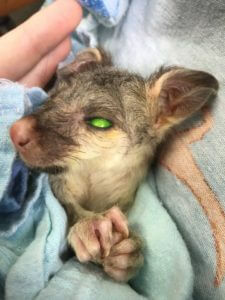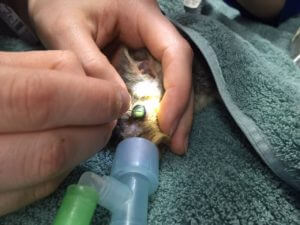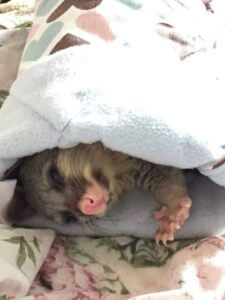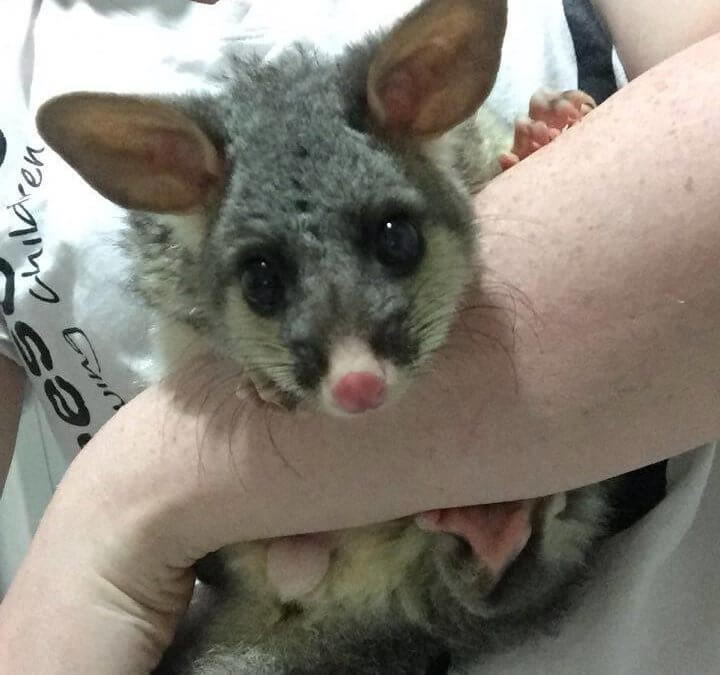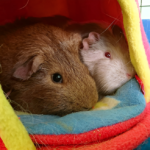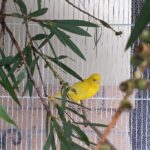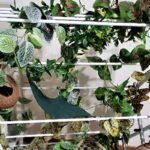Meet our friend Little Poss, who came to us after falling from his mum. Unfortunately he had been seen to be separated from his mother for some time before anyone sought help for him. When he was finally able to be seen by a vet, he was found to be extremely thin, dehydrated, lethargic and suffering from a terrible eye injury. While the odds were against this poor little guy, our wonderful vets were keen to give him a chance. Little Poss was immedtiately provided with subcutanous fluids for rehydration, special medicated eye drops, pain relief and a tummy full of milk! Poss responded well to his treatment, however the ulcer on his eye was not healing. In order to be released, Poss needed to have perfect vision to fight off predators and find food. To save his sight, out vets had to perform a surgery, to encourage his eye to heal further. This procedure, coupled with another two types of eye drops and even his own plasma, has brought him to a point where he is now able to be released! Poss will still be with his carer for some time before facing the big wide world, but thanks to our wonderful vets and wildlife carers, he will make it back home.
Check out his photos 
It is important that sick, injured and orphaned animals are provided with veterinary attention as soon as possible. Immediate treatment could be the difference between life and death. Most veterinary clinics will accept wildlife, as do the RSPCA, Currumbin Wildlife Hospital and Australia Zoo Wildlife Hospital at Beerwah.
This little possum’s treatment thus far has topped $500!
Did you know that there is no funding provided to veterinary clinics to support the health care of wildlife? While vets do their very best to help our wild friends, it does come at a cost. Many local vets are small businesses, and provide the best care possible to wild patients while trying to keep themselves afloat. Some ‘finders’ opt to leave a small donation with their wild friend when presenting them to the vet. This donation helps to provide food and bedding, a veterinary assessment, medication and often long term care for the animal. While vets will provide the best care they can (often from their own pockets), the support of the community is always greatly appreciated.
